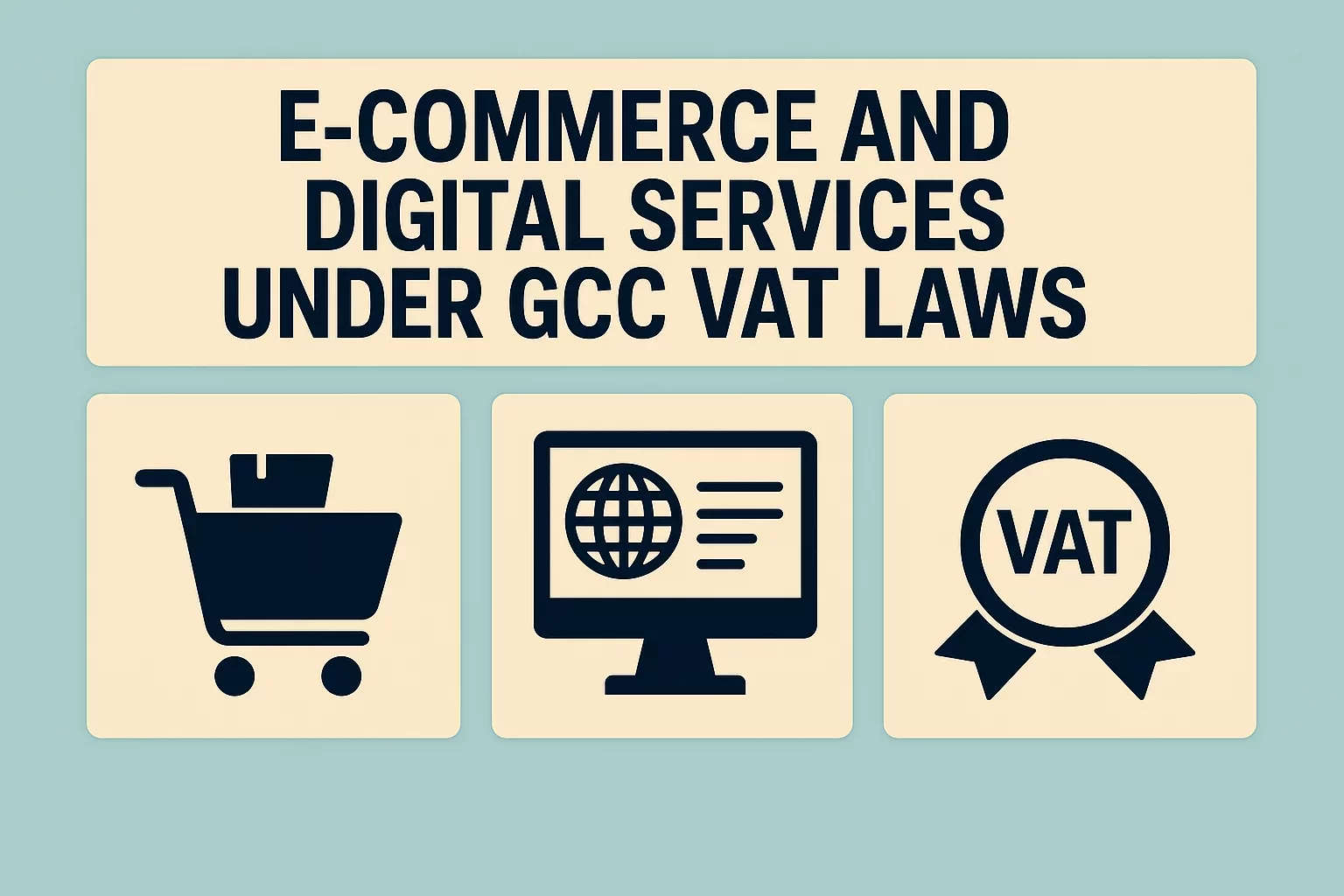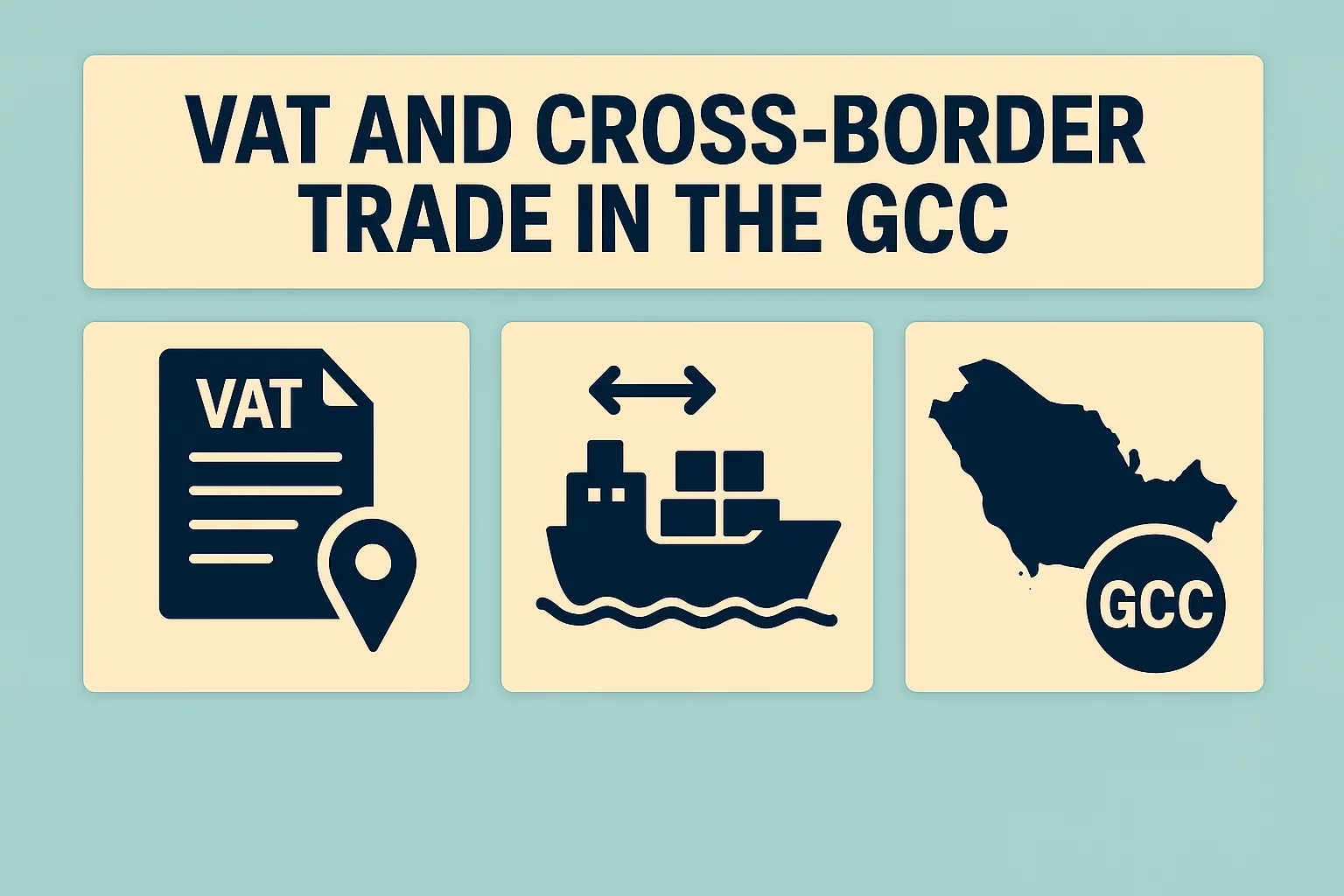VAT Compliance Obligations: Registration, Filing, Invoicing, and Penalties
Learn GCC VAT compliance rules, from registration and filing to invoicing requirements and penalties for non‑compliance.
As is true for any other country or region in the world that has introduced and implemented VAT, GST, sales tax, or some other form of consumption and indirect tax, the implementation of VAT among GCC countries has brought about a significant change in fiscal policies and business operations.
However, due to specific differences in implemented, as well as non-implemented, rules and regulations, businesses operating in the UAE, Saudi Arabia, Bahrain, Oman, Kuwait, or Qatar must navigate a range of overlapping obligations.
From VAT Registration to Payment
VAT compliance starts with understanding when to register for VAT purposes in any jurisdiction. Under the GCC VAT Framework Agreement, taxable persons whose annual taxable supplies exceed a threshold equivalent to SAR 375,000 (approximately USD 100,000) or the local currency equivalent must register for VAT. Following this rule, all four GCC countries that implemented VAT into their national legislation set the VAT registration threshold accordingly.
Registration is mainly electronic, with applications submitted through government portals such as the UAE’s FTA e‑portal or Oman’s Tax Authority system. Depending on the country in which taxable persons are registering, documents needed to complete the registration process may include business information, turnover history, licensing documentation, projected revenues, and a Power of Attorney.
Once the registration is completed, a Tax Registration Number (TRN) is issued to the taxable persons. The estimated duration for completing the registration process is approximately 20 business days. Therefore, taxable persons should consider this when planning their VAT registration. As a direct consequence of registering for VAT, taxable persons are immediately faced with additional requirements, including issuing compliant invoices, maintaining records for a typical five-year period, and filing periodic returns.
Generally, VAT filing periods are quarterly, but certain taxable persons may be required to file monthly VAT returns. VAT filing frequency rules depend on the volume and local authority requirements. For example, both the UAE and Oman have the same rules stating that VAT returns must be submitted and paid within 28 days of the end of the period.
Regarding invoicing, invoices issued by registered taxable persons must include key elements, such as the words Tax Invoice, supplier details, including TRN, sequential invoice numbering, date, description, price, VAT rate, and VAT amount. All of the stated elements are defined as mandatory across the GCC.
Reporting Requirements in GCC
Common Compliance Mistakes in the GCC
Because all the VAT systems implemented across the CGG are relatively new, many businesses, especially small ones, have found it challenging to come to terms with the registration, reporting, and payment requirements. Some of the most common mistakes include late registration, return filing errors, invoicing defects, poor record-keeping, misunderstanding cross-border rules, and neglecting e-invoicing mandates.
Late registration is one of the biggest challenges for individuals and organizations operating in the region. While the apparent consequence of late registration is the imposition of fines and interest, Bahrain threatens such non-compliance as criminal action of tax evasion, which may result in imprisonment.
One of the primary reasons for late registration is the incorrect interpretation of VAT rules regarding input tax deductions. Misunderstanding of these rules leads to inaccurate input VAT deductions related to exempt supplies, inappropriate input VAT deductions on non-compliant invoices, incorrect recovery of input VAT related to capital assets, and inaccurate deduction of import VAT payments.
An additional issue occurs when businesses face reporting obligations for the first time. Besides not upgrading their accounting system to comply with VAT requirements, taxable persons often submit VAT returns late or irregularly. Furthermore, taxable persons operating in more than one GCC country may apply the incorrect VAT rate. Although the GCC VAT Framework Agreement stipulates a standard VAT rate of 5%, Saudi Arabia and Bahrain have higher standard VAT rates.
Considering that VAT systems are evolving in the region, some countries, such as Saudi Arabia and the UAE, have advanced with the implementation of e-invoicing regimes, while others are still in the development phase. Therefore, taxable persons may find themselves in a difficult position to understand when and where e-invoicing is mandatory, which ultimately can lead to non-compliance.
Finally, not keeping proper records, such as a daily record of taxable transactions, inventory records, and documents related to the supplies of imported and exported goods and services, intra-GCC supplies of goods and services, those relating to customs transactions, or tax invoices, may also present as troubling for some taxable persons. Additionally, retention periods may vary by country.
Penalties and Enforcement
As previously mentioned, non-compliance with VAT rules can result in monetary penalties and, in some cases, imprisonment. For example, failure to register for VAT in Oman may result in fines ranging from OMR 5,000 (approximately USD 13,000) to OMR 20,000 (approximately USD 52,000), as well as a prison sentence of between one and three years.
The same failure is penalized with SAR 10,000 (approximately USD 2,700) in Saudi Arabia, and AED 10,000 (approximately USD 2,750) in the UAE. Failure to apply for VAT registration within 60 days of the registration deadline is penalized with a fine of up to BHD 10,000 (approximately USD 26,500) in Bahrain. Additionally, if the taxable person fails to apply for registration within 120 days of the registration deadline, such failure is treated as tax evasion, with potential imprisonment of up to five years.
Late filing of VAT return also results in severe penalties, which in some cases may also lead to tax evasion charges. For example, in Bahrain, if VAT returns are not filed or payment is not made within 60 days of the deadline, taxable persons may face a prison sentence in addition to a fine not exceeding three times the due VAT. Notably, in Bahrain, legal entities are subject to double the maximum fine applicable to individuals.
In Oman, late filing of the VAT return is subject to an administrative penalty ranging from OMR 500 to OMR 5,000 (approximately USD 1,300 to USD 13,000).
As an additional means to ensure compliance, or at least that those who do not comply pay their due VAT with interest and penalties, Saudi Arabia, Bahrain, Oman, and the UAE have a five-year statute of limitations period. Within those five years, national Tax Authorities may conduct tax assessments and request due payments. However, there are some exemptions to the five-year period that extend it.
Reaching VAT Compliance in GCC
There are several key steps that taxable persons can take to achieve VAT compliance in the Gulf region. First, they should carefully monitor turnover to ensure timely registration. Secondly, once they have completed the VAT registration process, they must update and maintain their profiles on the relevant authority portals to avoid penalties associated with changes in address, management, or trade name.
Furthermore, using automation tools may assist table persons in complying with reporting and payment obligations, as these systems can alert stakeholders to deadlines, verify invoice content, calculate VAT correctly, and flag errors before submission.
Ensuring that required documents, such as invoices, ledger details, imports and exports data, and credit or debit notes, are obtained and retained for the required period is another step in becoming and staying compliant. Regular internal audits and reconciliation exercises can help prevent errors before they are identified during an audit.
Tracking regulatory changes and staying informed of any upcoming requirements, such as the implementation of mandatory e-invoicing, is also essential. Therefore, reviewing monthly or quarterly reports on the newest regulatory policies and developments among GCC countries is one of the key steps to consider.
Conclusion
While the GCC VAT Framework Agreement provides a baseline, each implementing country has its nuances in terms of registration, filing, invoicing, and enforcement. Although GCC countries strive for unification and harmonization of the VAT rules, the path to establishing such a system is still a long one.
Until Qatar and Kuwait introduce VAT, and until all six countries establish a unified VAT system, taxable persons must monitor their turnover, register on time, keep meticulous records, invest in technology for reporting, and stay informed about regulatory updates, positioning themselves not only to avoid penalties but also to operate with greater financial predictability and credibility.
Under the GCC VAT Framework Agreement, the VAT registration threshold is SAR 375,000 (about USD 100,000) or the equivalent in local currency. Each implementing GCC country has set this same threshold in its local legislation.
Most GCC countries require quarterly filings and make quarterly payments. However, certain taxable persons, especially those with high turnover, may be required to file a monthly VAT return and make monthly payments of the due taxes.
Mandatory details include the phrase Tax Invoice, supplier and customer information, including TRN, invoice date, sequential invoice number, description of goods or services, VAT rate, and VAT amount.
Penalties for not complying with the VAT registration rules vary and are set at AED 10,000 in the UAE, SAR 10,000 in Saudi Arabia, from OMR 5,000 to 20,000 in Oman, and up to BHD 10,000 in Bahrain. In Bahrain, extended delays can be treated as tax evasion.
Individuals who do not comply with VAT rules may face imprisonment in Bahrain and Oman for serious offences such as tax evasion.
Typically, tax authorities have five years to conduct assessments and claim unpaid VAT, with extensions possible in some instances of suspected evasion.
Source: VATabout, UAE Federal Tax Authority, Oman Tax Authority, Government of Bahrain, Government of the Kingdom of Saudi Arabia, KPMG, PwC


